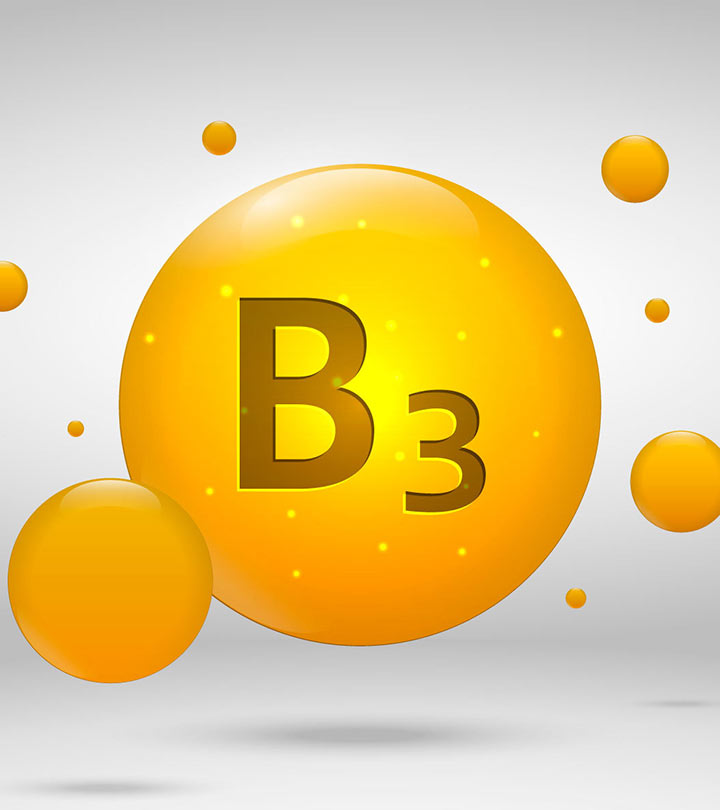Niacin has 14 proven benefits, including lowering bad cholesterol and aiding in weight loss. However, it can cause side effects such as flushing, headaches, dizziness, and low blood pressure.

Benefits Of Niacin
Niacin offers numerous proven benefits, including lowering bad cholesterol, aiding in weight loss, and improving blood lipid profiles. It can be a valuable addition to your daily health routine. However, it’s important to be aware of potential side effects such as flushing, headaches, and low blood pressure.
Niacin, also known as vitamin B3, offers a range of health benefits that make it a valuable addition to your daily routine. From lowering bad cholesterol to aiding in weight loss, niacin can positively impact your overall well-being. Let’s explore the key benefits of niacin in more detail:
Lowering Bad Cholesterol
Niacin has been found to effectively lower levels of LDL, or “bad,” cholesterol while simultaneously increasing HDL, or “good,” cholesterol. This can help reduce the risk of heart disease and improve cardiovascular health. By promoting a healthier lipid profile, niacin helps maintain optimal cholesterol levels.
Aiding In Weight Loss
For individuals looking to shed a few pounds, niacin can be a helpful ally. This vitamin has been shown to increase adiponectin, a hormone that regulates metabolism and plays a crucial role in weight loss. By boosting adiponectin levels, niacin may enhance fat burning and support healthy weight management.
In addition to these key benefits, niacin also offers other advantages, such as improving blood lipid profiles. Niacin supplementation has been associated with reduced triglyceride levels and increased levels of HDL cholesterol, both of which contribute to optimized cardiovascular health.
Now that we understand the benefits of niacin, it’s important to note its dosage and potential side effects. Always consult with a healthcare professional before starting any new supplement regimen to ensure proper usage and minimize the risk of adverse reactions.

Dosage And Side Effects
Niacin supplementation can have side effects such as severe skin flushing, itching, nausea, and abdominal pain. It is important to be aware of these potential side effects before incorporating niacin into your health routine.
Recommended Dosage
When it comes to niacin supplementation, it is essential to follow the recommended dosage to ensure safety and maximize the potential benefits. The recommended daily allowance (RDA) of niacin varies depending on age, gender, and medical conditions. Here is a breakdown of the recommended dosage for different populations:
For adult men, the RDA of niacin is 16 milligrams (mg) per day.
For adult women, the RDA of niacin is 14 mg per day.
For pregnant women, the RDA of niacin is 18 mg per day.
For breastfeeding women, the RDA of niacin is 17 mg per day.
It is important to note that some individuals may require higher doses of niacin under medical supervision for specific conditions. Always consult with a healthcare professional before starting niacin supplementation.
Common Side Effects
Like any supplement, niacin may cause some side effects, although they are generally mild and temporary. Common side effects of niacin supplementation can include:
Flushing: Niacin is known to cause flushing, which is a warm, tingling sensation on the skin. This is a normal reaction and usually subsides over time.
Headache: Some individuals may experience headaches, especially when starting niacin supplementation. Drinking plenty of water can help alleviate this symptom.
Nausea and vomiting: Niacin may cause mild gastrointestinal discomfort, including nausea and vomiting. Taking niacin with food can help reduce these symptoms.
Itching: Itching or a rash may occur as a result of niacin supplementation. If the itching becomes severe or persistent, it is important to seek medical advice.
Other rare side effects: Less common side effects of niacin include dizziness, rapid heartbeat, abdominal pain, diarrhea, gout, and liver problems.
It is important to note that these side effects are generally mild and temporary. If you experience severe or persistent side effects, it is crucial to consult with a healthcare professional.
Precautions And Interactions
While niacin is generally safe for most people, it is important to take certain precautions and be aware of potential interactions with other medications or health conditions. Here are some important precautions and interactions to consider:
Allergic reactions: Individuals with known allergies to niacin or any of its ingredients should avoid niacin supplementation.
Liver problems: Niacin can affect liver function, so individuals with liver problems should consult with a healthcare professional before taking niacin supplements.
Diabetes: Niacin can affect blood sugar levels, so individuals with diabetes should closely monitor their blood sugar levels and work with their healthcare provider to adjust their medication if necessary.
Blood thinners: Niacin can enhance the effects of blood-thinning medications, increasing the risk of bleeding. It is important to inform your healthcare provider if you are taking any blood thinners.
Other medications and supplements: Niacin may interact with certain medications or supplements, including cholesterol-lowering drugs, high blood pressure medications, and other supplements. Always consult with a healthcare professional before combining niacin with any medications or supplements.
Taking niacin under the guidance of a healthcare professional is essential to ensure safety and minimize the risk of side effects or interactions.

Frequently Asked Questions Of 14 Proven Benefits Of Niacin, Dosage, And Side Effects
What Are The Benefits Of Taking Niacin?
Niacin offers a range of benefits including lowering bad cholesterol, aiding in weight loss, promoting healthy skin and hair, and supporting cardiovascular health.
What Are The Recommended Dosages Of Niacin?
The recommended dosage of Niacin varies depending on individual needs and health conditions. It is best to consult with a healthcare professional for personalized dosage recommendations.
Are There Any Side Effects Of Niacin?
Some possible side effects of Niacin include skin flushing, dizziness, rapid heartbeat, itching, nausea, vomiting, abdominal pain, diarrhea, gout, and liver damage. It is important to consult with a doctor before starting Niacin supplementation.
Conclusion
Incorporating niacin into your daily health routine can provide numerous benefits. From lowering bad cholesterol to aiding in weight loss, niacin is a supplement worth considering. However, it is important to be aware of the potential side effects, such as flushing and dizziness.
As with any supplement, it’s best to consult with a healthcare provider before starting niacin. By understanding the dosage and potential side effects, you can make informed decisions about incorporating niacin into your daily life.

